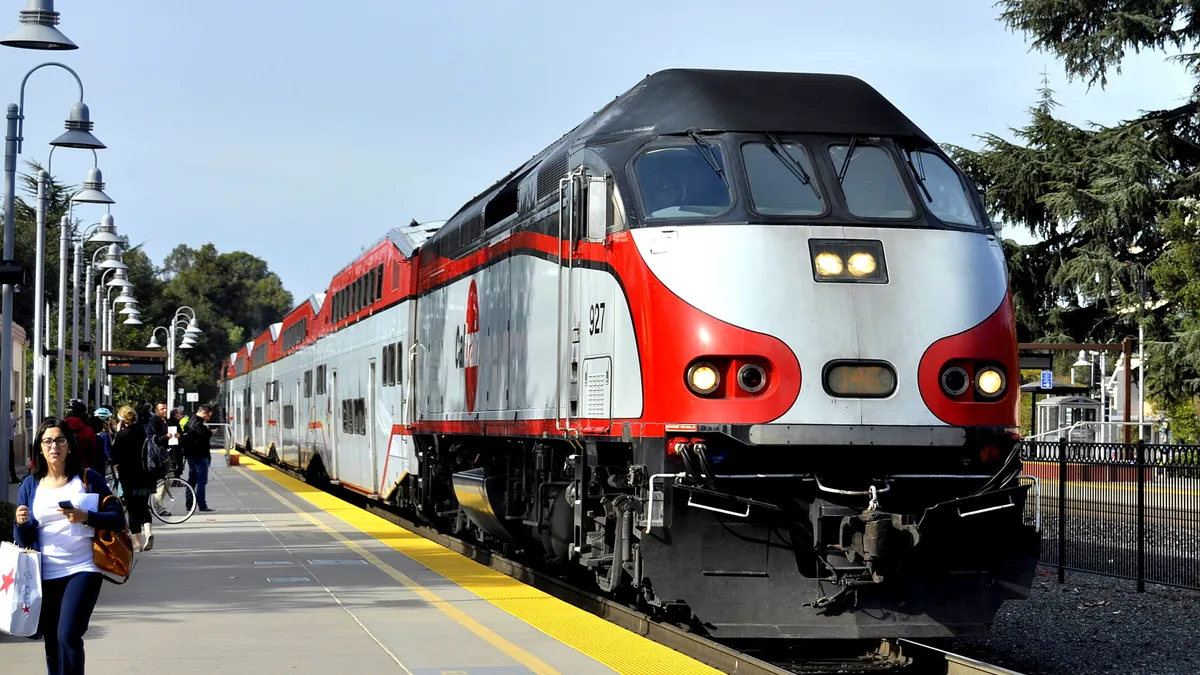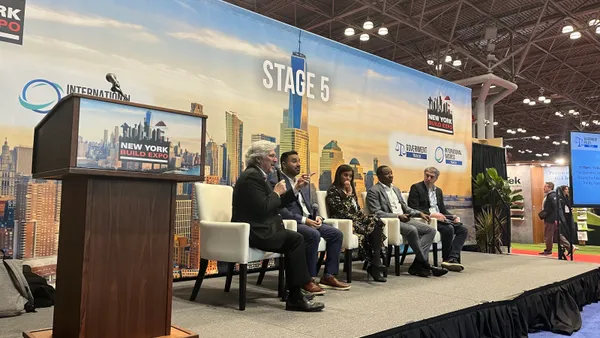Dive Brief:
- San Francisco Bay-area subway and rail projects are some of the priciest in the world, according to Curbed San Francisco, a fact that will likely limit the scope of a planned $21 billion, multi-county transit capital program and one that could cause local officials to fall short of a 2040 plan to increase ridership.
- A new tunnel connecting the Salesforce Transit Center to an existing Caltrain station is expected to cost $3 billion per mile — six times the cost of similar projects outside the U.S. Meanwhile, a 1.7-mile city subway tunnel is estimated at $923 million per mile, double what subway systems cost elsewhere in the world. One factor contributing to the high prices for these and other projects is poor planning, according to transportation expert Alon Levy, who suggested that regional authorities come together to coordinate transportation initiatives — infrastructure, routes and schedules — making them more cost efficient and more attractive to potential riders.
- Another reason for the high cost of construction is state procurement laws, Levy told Curbed. Most projects require selection of the low bidder, but firms who win the awards with too-low prices sometimes later come back and demand more money to complete the job, creating cost overruns. Rethinking relationships with those contractors who make a practice of this, as well as with overpriced politically connected outside consultants, could also bring down costs.
Dive Insight:
San Francisco's infrastructure costs are second only to that of the East Side Access tunnel in New York City, which is estimated to be $3.5 billion per mile. Levy's research on U.S. versus international infrastructure costs led to a December 2017 New York Times article about the discrepancies. Congress, through the authority given the Government Accountability Office in this year's $1.3 trillion spending bill, will also investigate the high costs.
The Times found that, just as in San Francisco, influential design firms and other consultants were pumping up the price tag for infrastructure projects in New York City by as much as 50%, but that union labor rates also had a hand in it. For example, on the pricey East Side Access tunnel, which will connect the Long Island Railroad to Grand Central Terminal, one trade union reportedly negotiated for its members a wage-plus-benefits rate of $111 per hour and up to $400 per hour for weekend work and overtime.
The Times also reported that the Metropolitan Transportation Authority had staffed projects with up to four times the necessary employees and that public officials had been hesitant to take action in an effort to control costs.













